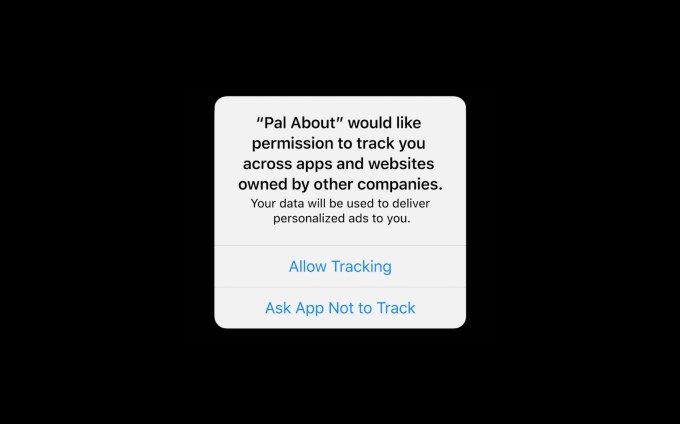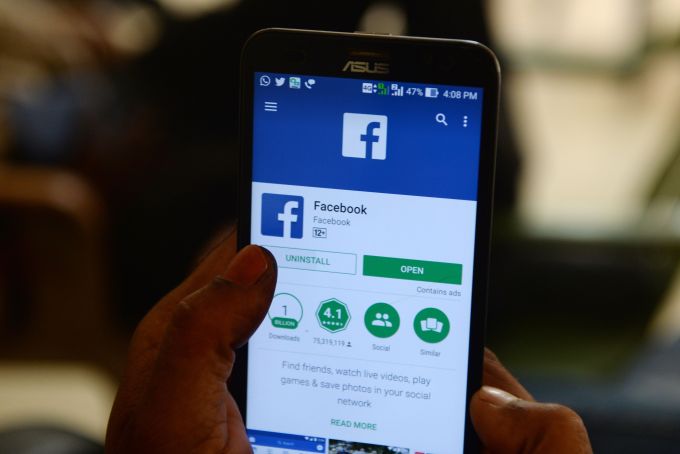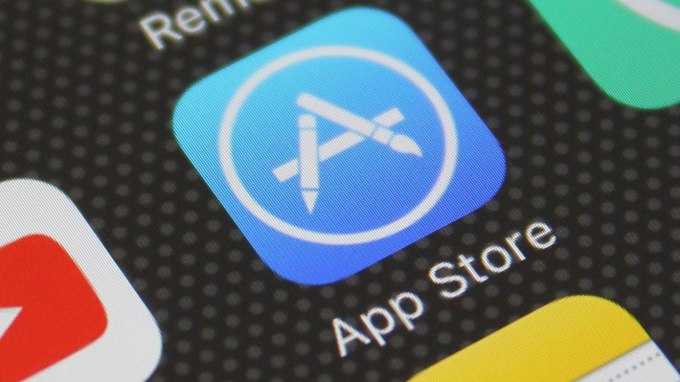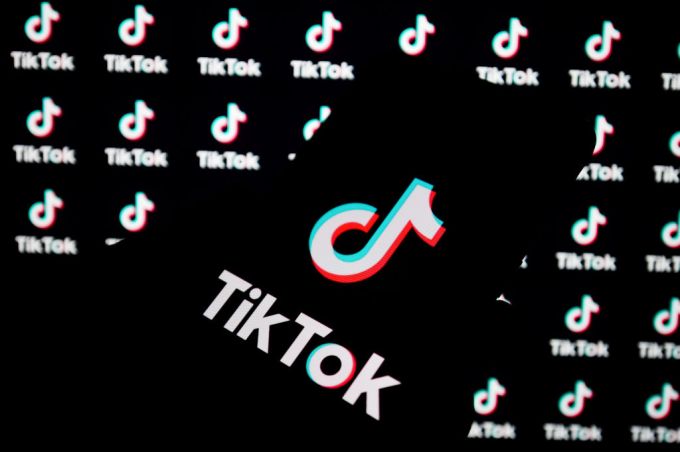Welcome back to This Week in Apps, the TechCrunch series that recaps the latest OS news, the applications they support and the money that flows through it all.
The app industry is as hot as ever, with a record 204 billion downloads and $120 billion in consumer spending in 2019. People are now spending three hours and 40 minutes per day using apps, rivaling TV. Apps aren’t just a way to pass idle hours — they’re a big business. In 2019, mobile-first companies had a combined $544 billion valuation, 6.5x higher than those without a mobile focus.
In this series, we help you keep up with the latest news from the world of apps, delivered on a weekly basis.
This week, a handful of top stories lead our coverage. TikTok deal talks this week got hung up over whether or not TikTok can export the app’s algorithms as part of any acquisition of its U.S. operations by an American firm. Apple also made headlines for delaying the rollout of a potentially disastrous iOS 14 change that’s been panicking the advertising community. It also announced that it will no longer ban apps from pushing out security updates and bug fixes, even when App Review has blocked their app updates over policy non-compliance.
Top Stories
Apple delays the mobile ad apocalypse

Image Credits: Apple
Apple this week announced it would delay a controversial change that would impact how ads are targeted to iOS and iPadOS mobile users. In a move aimed at protecting consumer privacy, Apple was poised to introduce a new, in-app prompt in iOS 14 that would ask users whether they would like to allow targeted ad tracking or not. Because most consumers generally don’t like the stalker-ish nature of digital ads, you know what they’d choose!
The change involves an identifier known as IDFA (Identifier for Advertisers) that allows advertisers to track how well their ad performs, including which channels drove what quality of users. This lets advertisers make better, more informed choices on their digital ad spend. It’s a key part of app marketing today.
Overall, we’re talking about a massive industry being disrupted. According to eMarketer, the U.S. mobile advertising reached $87.3 billion in 2019. Globally, app install ad spend was $57.8 billion in 2019 and was poised to grow to $118 billion in 2022, per AppsFlyer data. And yet, Apple doesn’t really participate here. Instead, it only offers Search Ads in its App Store. But to promote apps, Apple relies on editorial — like curated collections in the App Store and stories about apps on the Today tab. These can help direct traffic to apps, as can outside press, but the most efficient way to acquire users is paid spend on app install ads.
The mobile ad industry built itself up around the IDFA, offering tools focused on making it easier to measure ad performance and optimize ad spend. Apple was ready to wipe that industry out of existence. And marketers, as you can imagine, were panicking. Even calling it an apocalypse.
As an alternative, Apple was offering SKAdNetwork, introduced in 2018. But it lacked a lot of the information marketers rely on, like attribution or information on impressions, creative, remarketing, in-app events, lookback windows, user lifetime value, ROI, retention or cohort analysis.

This photo illustration taken on March 22, 2018 shows apps for Facebook and other social networks on a smartphone in Chennai. (Photo credit: ARUN SANKAR/AFP via Getty Images)
Last week, Facebook spoke up about how serious the change would be to its own business, saying that, in testing, it found that without targeting and personalization, mobile app install campaigns brought in 50% less revenue for publishers. “The impact to Audience Network on iOS 14 may be much more,” the company noted, referencing the ad network that uses Facebook data to target ads on publishers’ websites and apps.
A few days later, Apple announced the change was being put on hold, saying:
We believe technology should protect users’ fundamental right to privacy, and that means giving users tools to understand which apps and websites may be sharing their data with other companies for advertising or advertising measurement purposes, as well as the tools to revoke permission for this tracking. When enabled, a system prompt will give users the ability to allow or reject that tracking on an app-by-app basis. We want to give developers the time they need to make the necessary changes, and as a result, the requirement to use this tracking permission will go into effect early next year.
It’s unclear if Apple plans to respond to any of the industry’s concerns during this delay, or if it’s just given mobile marketers more time to figure out how to proceed in a data-less future. But at the very least, it’s the latter. Apple only announced the change to IDFA at WWDC this year — not enough time for an entire industry to retool itself around SKAdNetwork or implement other workarounds. The bigger question has to do with Apple’s long-term goals? It’s rewriting the rules to give itself a seat at the table, after all.
Apple puts an end to App Store Jail…for bug fixes

Image Credits: TechCrunch
Apple often put iOS users at risk when it blocked developers from publishing their apps to the App Store over policy violations. In some cases, developers have urgently needed to release security patches and other bug fixes that could cause major problems for their users.
As Apple has increasingly begun to crack down on App Store violations, including those that require apps to use Apple Pay for in-app purchases, more developers have been caught in desperate situations. Apple put Basecamp’s new email app on ice almost immediately after it launched, and even temporarily rejected the free WordPress app, because in some web views, users could make their way to a page where they could upgrade to a paid plan:
WordPress’ Matt Mullenweg took to Twitter looking for help as a last alternative, after realizing the company couldn’t even ship its bug fixes until the issue had been resolved. The move caught Apple’s attention, and the situation was addressed. Apple even apologized.
A change to App Review, now live, will give developers caught in similar situations a way to keep pushing out their most critical updates, but not other app improvements. Apple’s plans had been previously announced at WWDC, but the rollout is timely as Apple steps up its policing of the App Store. However, making these rejections less of a potential disaster for developers may also see fewer developers talking publicly about their rejections or running to the press. With the urgency of a critical bug fix to drive them, the everyday rejection may go unnoticed.
Developers in the past had been scared of punitive actions for talking to the press about their troubles. But in the new antitrust era, more have begun to speak up when they feel Apple is unfairly punishing their business. That’s been good for U.S. regulators, at least. Congress has been collecting testimonies from developers that could ultimately impact the government’s decision to regulate the App Store. One has to wonder why Apple thinks the fight is worth it. It’s battling in the courtroom with Epic Games and it’s risking regulation, when the whole problem could have gone away with a small cut to its commission structure. Guess “services” really is the future of Apple’s business if it’s willing to take this sort of risk.
TikTok deal gets more complicated

CHINA – 2020/08/05: In this photo illustration, a TikTok logo is seen displayed on a smartphone. (Photo Illustration by Sheldon Cooper/SOPA Images/LightRocket via Getty Images)
Everyone is waiting for the next shoe to drop on the topic of TikTok’s fate. One of the world’s biggest mobile apps, TikTok is going to be banned in the U.S. if it fails to get a deal by the September 20 deadline. China has now thrown a wrench in deal negotiations, when it issued new restrictions over the export of AI technology. The order could possibly complicate a TikTok deal, as it could mean that TikTok needs to get Chinese government approval to transfer TikTok’s algorithms along with other IP to any potential U.S. acquirer.
That leaves buyers to either pursue a deal without the algorithms in order to meet the deadline, or try to negotiate some sort of transition period for the deal with the Committee on Foreign Investment in the United States (CFIUS). The latter would take some of the pressure off by dialing back on the immediacy required by the Trump E.O. Buyers could also try to get China to approve the export (which isn’t a timely option, really) or maybe license the algorithm from TikTok parent ByteDance.
Anyone who downplays the success of the continued success of TikTok without its algorithm has clearly not spent enough time on the app. While it now has the reach, its addictiveness comes from its eerily accurate algorithm that learns exactly what you want to see by way of using more than just basic signals. It’s non-trivial to spin that up again from scratch, but not an insurmountable hurdle, either, given the right investment and talent. Still, that’s not what buyers were looking for. Walmart engineers rebuilding TikTok? Can you imagine?
Weekly News
- Snapchat had a big August amid TikTok uncertainty. The continual uncertainty around TikTok’s future may have provided a big boost to Snapchat in August. The app saw approximately 28.5 million new installs last month — its single largest month for first-time downloads since May 2019, according to Sensor Tower, when it had then seen 41.2 million new installs. The only other month, besides May 2019, where Snapchat had seen more monthly downloads than it did in August was December 2016. Downloads were up 29% year-over-year in August 2020, compared with 9% growth in July. (Sarah Perez/TechCrunch)
- India bans PUBG Mobile, and over 100 other Chinese apps.Geopolitical tensions between India and China again spilled over into the app economy this week, as India banned 118 more Chinese apps that it deemed “prejudicial to sovereignty and integrity of India, defence of India, security of state and public order.” The country had banned 59 Chinese apps, including TikTok, in June. Newly banned apps include Baidu, WeChat Work, Tencent Weiyun, Rise of Kingdoms, APUS Launcher, a VPN for TikTok, Mobile Taobao, Youko, Sina News, Cam Card, PUBG Mobile and many others. (Manish Singh/TechCrunch)
- Pakistan blocks five dating apps including Tinder and Grindr. Pakistan said on Tuesday it had blocked Tinder, Grindr and three other dating apps for not adhering to local laws around “immoral content.” (Gibran Naiyyar Peshimam/Reuters)
- Fortnite leaves a $1.2 billion hole in the market. Fortnite has picked up slightly more than $1.2 billion in player spending since launching in March 2018, according to Sensor Tower estimates. On Google Play, it has generated $9.7 million following its release on the storefront in April 2020. In 2020, Fortnite generated $293 million in player spending, with close to $283 million spent on the App Store alone. (Craig Chapple/Sensor Tower)
- Robinhood faces SEC probe for not disclosing deals with high-speed traders. Stock-trading app popular with millennials Robinhood is facing a civil fraud investigation over its failure to fully disclose its practice of selling clients’ orders to high-speed trading firms. (Dave Michaels; Alexander Osipovich/The Wall Street Journal).
- Amazon’s big redesign on iOS to reach all US users by month-end. Amazon has given its iOS app a significant makeover featuring new colors, updated navigation, a floating quick access bar and other changes designed to make it easier to browse the app using one hand. The rollout will reach 100% of U.S. iOS users by the end of September 2020. The changes come at a time when more consumers are shopping online due to health concerns around the coronavirus outbreak. (Sarah Perez/TechCrunch)
- Apple launches COVID-19 ‘Exposure Notification Express’ with iOS 13.7 — Android to follow later this month. Apple and Google are introducing new tools that make it easier for public health authorities to implement digital exposure notification, without the need for developing and maintaining their own individual apps. The iOS 13.7 update launched this week, with Android 6.0 arriving this month. (Darrell Etherington/TechCrunch)
- Introducing Game IQ. App Annie introduced a new game analytics product, Game IQ, that uses data science to create and maintain a customizable taxonomy that automates game analysis at scale. Game IQ will deliver visual reports that include answers to questions like market size, class, genre, subgenre, tags and more. (App Annie)
- Google launches Google Kids Space, a ‘kids mode’ feature for Android, initially on Lenovo tablets. The feature offers a dedicated kids mode on Android tablets which will aggregate apps, books and videos for kids to enjoy and learn from. Kids Space will launch first on the Lenovo Smart Tab M10 HD Gen 2, but Google aims to bring Kids Space to more devices in time. (Sarah Perez/TechCrunch)
- Play Store, App Store revenue may be capped at 20% in Russia. A lawmaker in Russia submitted draft legislation that would cut the app store revenue of Apple and Google. If enacted, the law would limit commissions to 20% on both app stores, including paid downloads and in-app purchases. (Rei Padla/Android Community)
- Apple-Epic row being closely watched by German antitrust chief. Germany’s Federal Cartel Office said the Apple-Epic lawsuit in the U.S. “has most certainly attracted our interest,” and is considering opening its own inquiry into Apple. “We are at the beginning, but we are looking at this very closely,” said Andreas Mundt, head of the Federal Cartel Office. (Douglas Busvine/Reuters)
Apple Developer Round-up
Funding and M&A (and IPOs)
- Bambuser raises $45 million for its live video shopping platform. The company’s offering, which works on mobile similar to Instagram Live, has been used H&M, Motivi, Moda Operandi, Frame, LUISAVIAROMA and Showfields.
- Toss Lab raises $13 million for its cross-platform collaboration platform, JANDI, the ‘Slack of Asia.’
- San Francisco-based Skillz will IPO at a $3.5 billion valuation. The company offers a platform for making mobile games competitive, allowing users to play with friends or strangers for cash, prizes or points. It also enables esports tournaments.
- Dating app Bumble reportedly talking to bankers about a 2021 IPO at a valuation of $6 to $8 billion.
- Shopping app Wish submitted its draft registration to the SEC for an IPO. The company has raised $1.6 billion from investors to date, and was worth $11.2 billion as of last summer’s financing round.
- Bangalore-based online learning startup Unacademy announced it has raised $150 million in a new financing round that valued the Facebook-backed firm at $1.45 billion (post-money).
Downloads
The Last Campfire
Apple in 2018 approached Hello Games, the studio behind the hit title No Man’s Sky, to ask about titles that would work on Apple Arcade. The Last Campfire is the result of those talks. The game offers an artistic story of a lost ember trapped in a puzzling place, searching for meaning and a way home. The game supports controllers in addition to native touch controls,


from TechCrunch https://ift.tt/3h0c7c0
Paul Mozur / New York Times:












